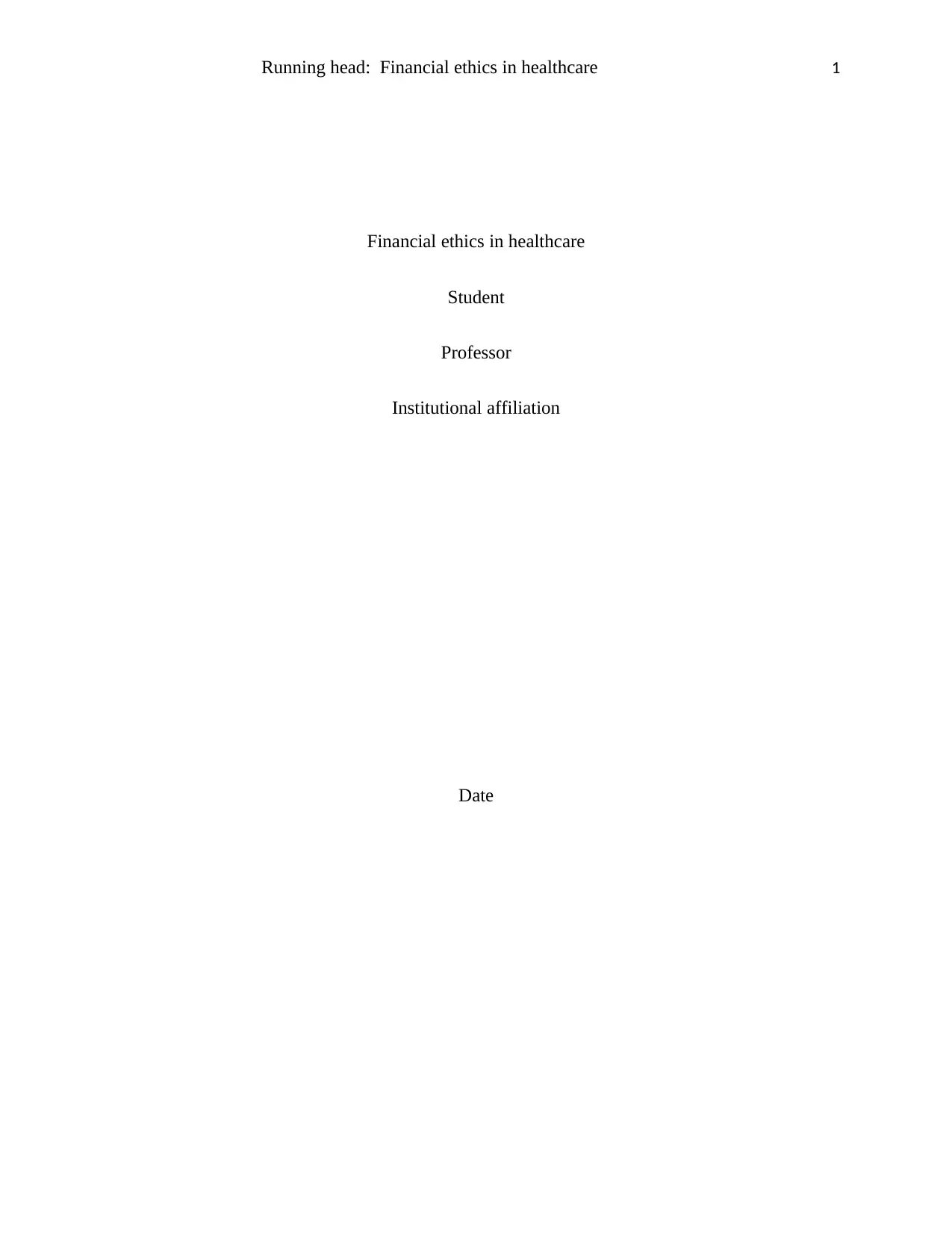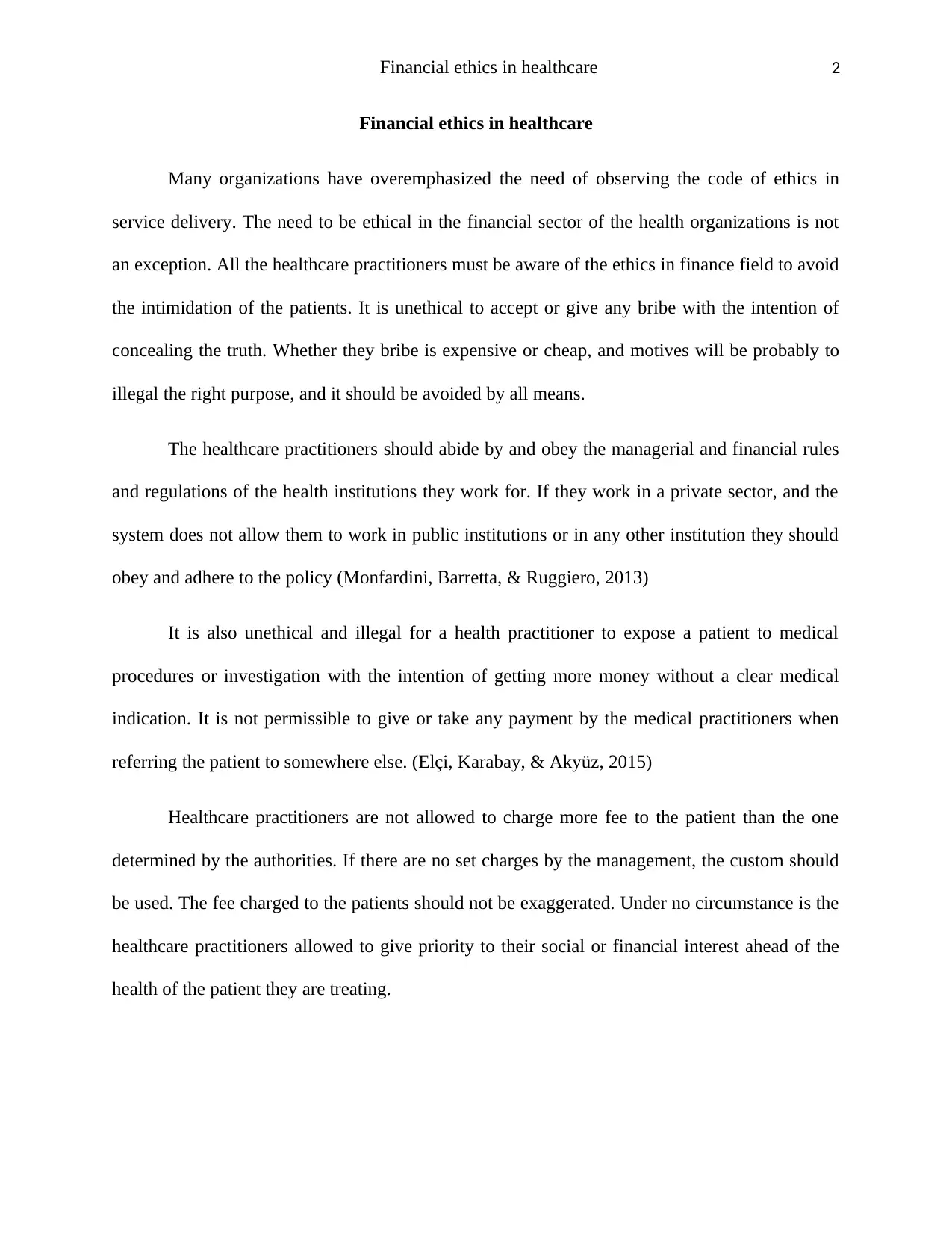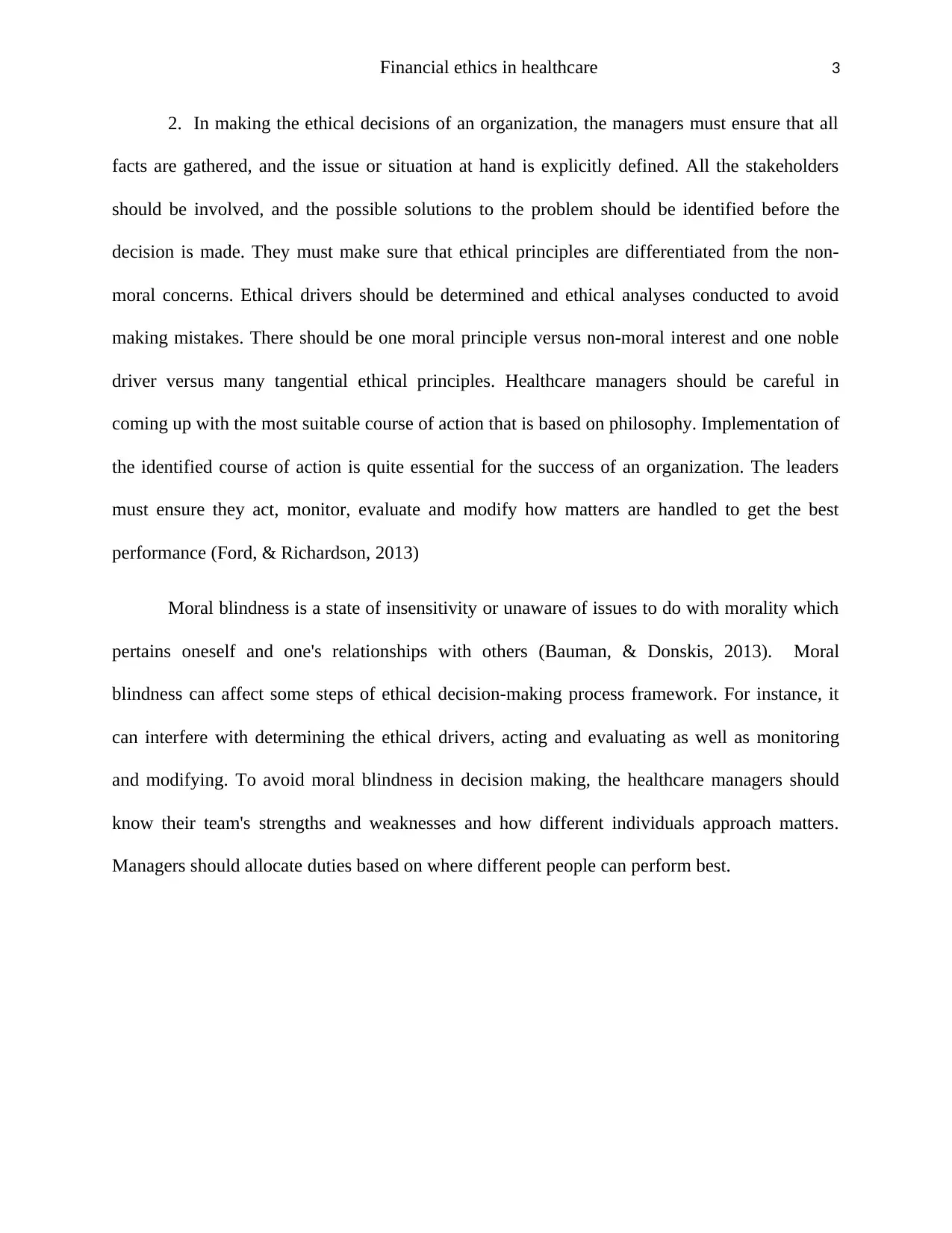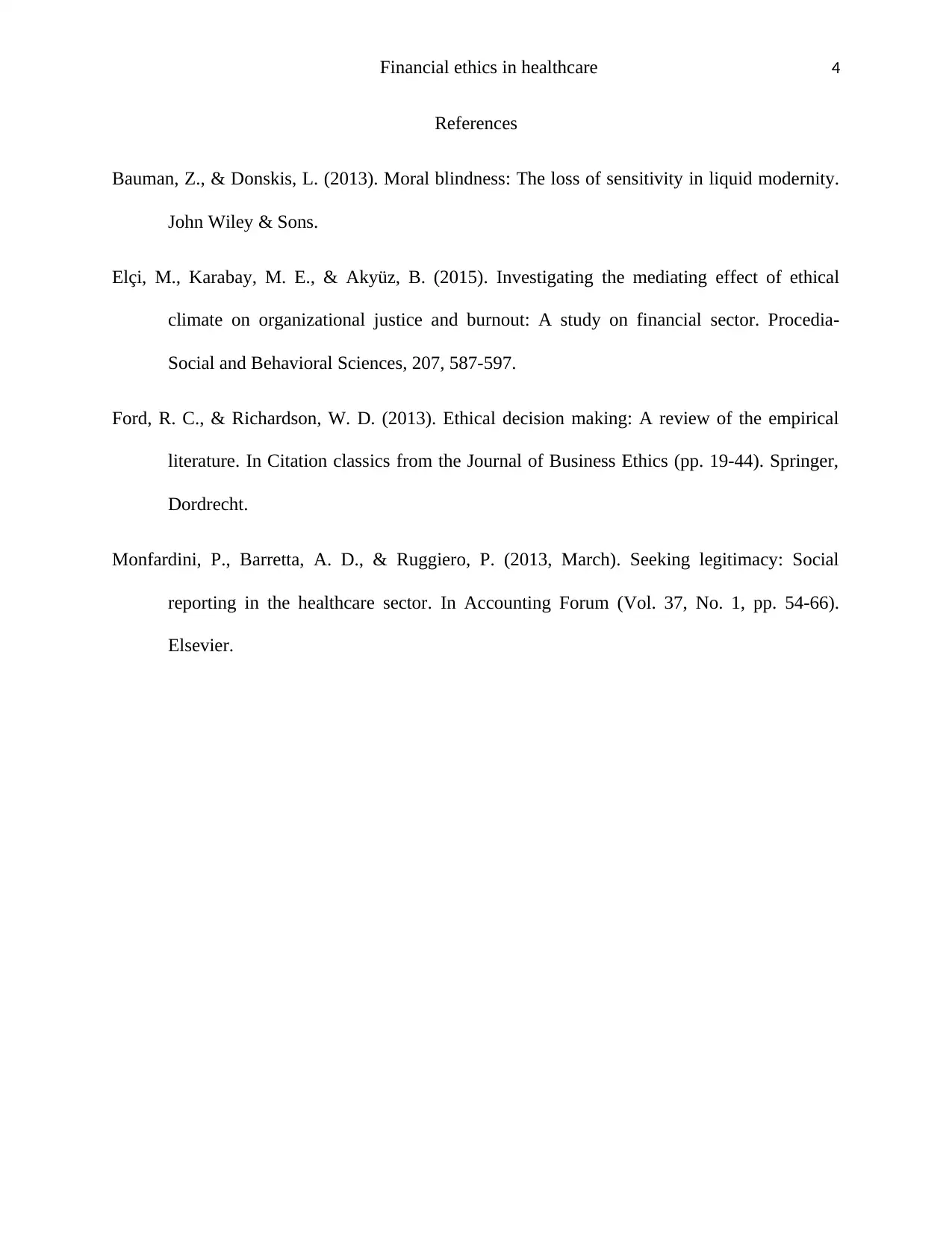Financial Ethics in Healthcare: Principles and Practices Analysis
VerifiedAdded on 2021/06/18
|4
|773
|90
Essay
AI Summary
This essay delves into the critical realm of financial ethics within the healthcare sector, emphasizing the importance of ethical conduct for all practitioners. It highlights the need to avoid bribery, adhere to financial regulations, and prioritize patient well-being over financial gain. The essay explores the ethical decision-making process, emphasizing the importance of gathering facts, involving stakeholders, and differentiating between ethical and non-moral concerns. It also addresses the concept of moral blindness and its impact on decision-making, suggesting strategies to mitigate its effects. Furthermore, the essay provides an overview of ethical principles and their application in healthcare finance, aiming to guide healthcare managers in making sound, ethically grounded decisions that promote transparency, fairness, and patient-centered care. The essay draws on various sources to support its arguments, providing a comprehensive analysis of the topic.
1 out of 4











![[object Object]](/_next/static/media/star-bottom.7253800d.svg)